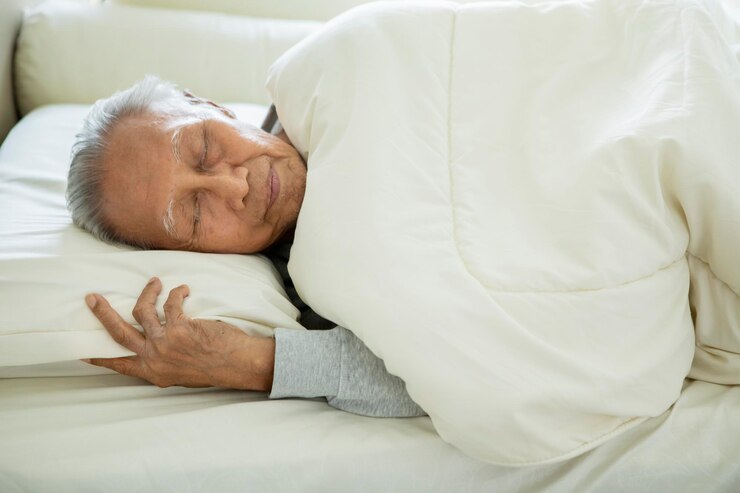As you get older, sleep can often become a rather unsettling task. Hormonal changes and chronic health conditions in old age can lead to poor sleep. Good quality sleep can get affected very easily and older adults might find themselves waking up tired than fully rested.
Quality sleep can help limit many physical and cognitive issues. To keep troubles like insomnia at bay, try these tips.
Here are 8 ways to help senior citizens sleep better:
Sleep at a fixed time
A disciplined sleep schedule can ease most sleep-related problems. Make sure that you are in bed at a fixed time. This will allow a healthy flow of melatonin in the brain. This hormone is responsible for telling your brain it is time to sleep.
Maintain this sleep plan during weekends and even on holidays

Avoid light before bedtime
Shut out the curtains and make your bedroom a cosy space. Avoid the usage of electronic screens like mobile phones and television at least an hour before bed. Using social media can keep the mind active.
UV light from screens reduces melatonin production in the brain. So, keep those gadgets away!

Exercise daily
Exercise is not only beneficial but vital in improving sleep quality. Although, recent studies have shown that exercising too late in the day or right before sleeping can disrupt your natural sleep wave. If you’re working out later in the evening, make sure to exercise 60-90 minutes before sleeping.
Avoid afternoon naps
One of the most common habits for older adults is taking afternoon naps. Letting go of this habit can be a game-changer. Sleeping once, only at night will ensure that your mind and body relax at a fixed time and enable sound sleep.
Avoid eating right before bed
Eliminating the habit of late evening meals sets your body’s internal clock to sleep on time. Irregular meals or midnight snacking can affect sleep hormone production levels and as a result disrupt the sleep quality.
Drink soothing beverages
Natural remedies like warm milk and chamomile tea can be super soothing. Drinking these healthy beverages a few hours before sleeping can drastically improve sleep. Avoiding caffeinated beverages like coffee and even green tea is essential to have a good night’s rest.
Consumption of alcohol close to bedtime is harmful to your health and your sleep. Have the right beverages at the right times and notice how your body naturally calls for sleep.
Have a bedtime routine
Use healthy habits like a warm bath, listening to soothing tunes/deep sleep music, going for a walk or washing your face right before bed. Having a relaxing pre-sleep routine can help signal your brain that it is time to get some rest.
Use bed for sleeping only
Use your bed only for sleeping. Avoid any other activity on your bed. This habit will automatically indicate your brain that it is time to go to sleep. If you are lying awake in bed for over 20 minutes, then leave your bed and come back when you are feeling tired.

This can be more effective as compared to tossing and turning in search of sleep. Using your bed only as a sleeping space can help you sleep much better in the long run.
These useful and scientific tips will help you go to bed and wake up well-rested. Enjoy better mood, and energy levels, and being wiser (as they say) throughout the day!






